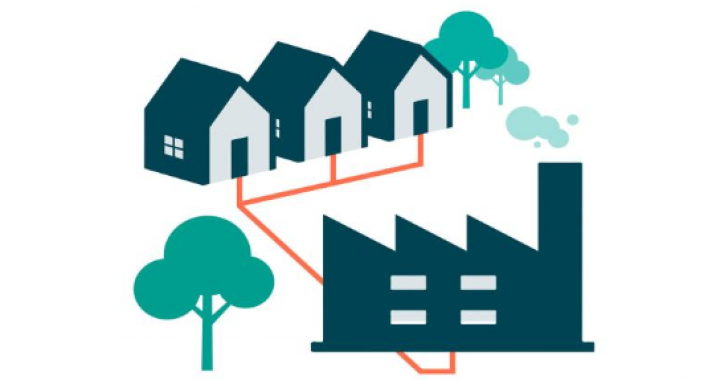100,000 homes to be disconnected from natural gas grid at accelerated pace
Dutch housing companies and heat companies conclude Starter Engine agreement
The Hague, 16 April 2020 | Published in Energy, Economy
Aedes, thirty-five housing associations and five heat companies have concluded an agreement aimed at improving the sustainability of the heat supply of 100,000 rental properties at an accelerated pace. This gives the European Green Deal a head start in the Netherlands. The agreement, the Starter Engine Framework [Startmotorkader], is published by the participants today. The improved sustainability will not lead to higher costs: on average, the amount to be paid by tenants will not be higher than their gas bill. Furthermore, the price that the housing companies will pay for being connected to the heat grid is based on a transparent calculation model.
The StarterEngine Framework was developed by 36 housing companies, with the support of Aedes, and five heat companies, Eneco, Vattenfall, Ennatuurlijk, Stadsverwarming Purmerend and HVC, and in close cooperation with tenant’s association Woonbond, the central government, municipalities and the association of Dutch municipalities VNG. The framework can be used by the entire sector and offers a basis for concluding agreements swiftly at project level on connecting homes to a collective heat system and keeping the heat supply affordable. The Starter Engine Framework is aimed primarily at h housing associations’ dwellings in urban areas in the vicinity of existing heat grids, in order to keep costs relatively limited.
Ron Wit, Director Energy Transition Eneco, on behalf of the heat companies:
”We are pleased with this unique collaboration with Aedes and the housing associations. A crucial item that we have agreed on, is that the switch from heating by means of natural gas to being connected to a heat grid will not result in higher costs for the tenants. We will also allow private homeowners in the same district to profit by offering them a similar deal. This way, we will increase the scale significantly and will become the starter engine for the Dutch district oriented approach.”
Tonny van de Ven, acting chairman, on behalf of Aedes:
”This agreement with the heat companies gives our housing associations full insight into the costs and benefits of being connected to a heat grid. Investments in a heat project are calculated with a transparent calculation model, which means that our members and tenants can be confident that they will pay a fair price for the heat provided.” This agreement allows housing associations to improve sustainability at a large scale by means of a district oriented approach and also offers starting points for achieving the objectives in the Dutch Climate Agreement 2050.
The Starter Engine Framework is an element of the Climate Agreement (Built Environment section) that has now been specified in detail in this agreement. The central government will provide support during the Starter Motor period to the amount of €200 million by means of the incentive scheme for rental properties that do not use natural gas Stimuleringsregeling Aardgasvrije Huurwoningen (SAH). This incentive scheme will be effective as of 1 May.
Background: Major step in realisation of Climate Agreement
In order to achieve our country’s climate objectives, seven million homes and one million buildings must be disconnected from the gas grid by 2050. With more than 2.2 million rental homes, housing companies are the largest homeowner in the Netherlands and, thus, an important partner. The sustainability of the first 1.5 million homes must have been improved by 2030. Municipalities are in charge of this process. The ‘Starter Motor’ collaboration originated at the climate table on the built environment. The goal was ambitious: with a unique approach, housing companies and heat companies will together ensure that thousands of homes will no longer be using natural gas. At present, 36 housing companies and five heat companies (Eneco, Vattenfall, Ennatuurlijk, Stadsverwarming Purmerend and HVC) are already starting the process of increasing the scale in order to achieve the ambition for 2050. It is possible that more housing associations will join later this year, now that the Starter Engine Framework provides a practical foundation.